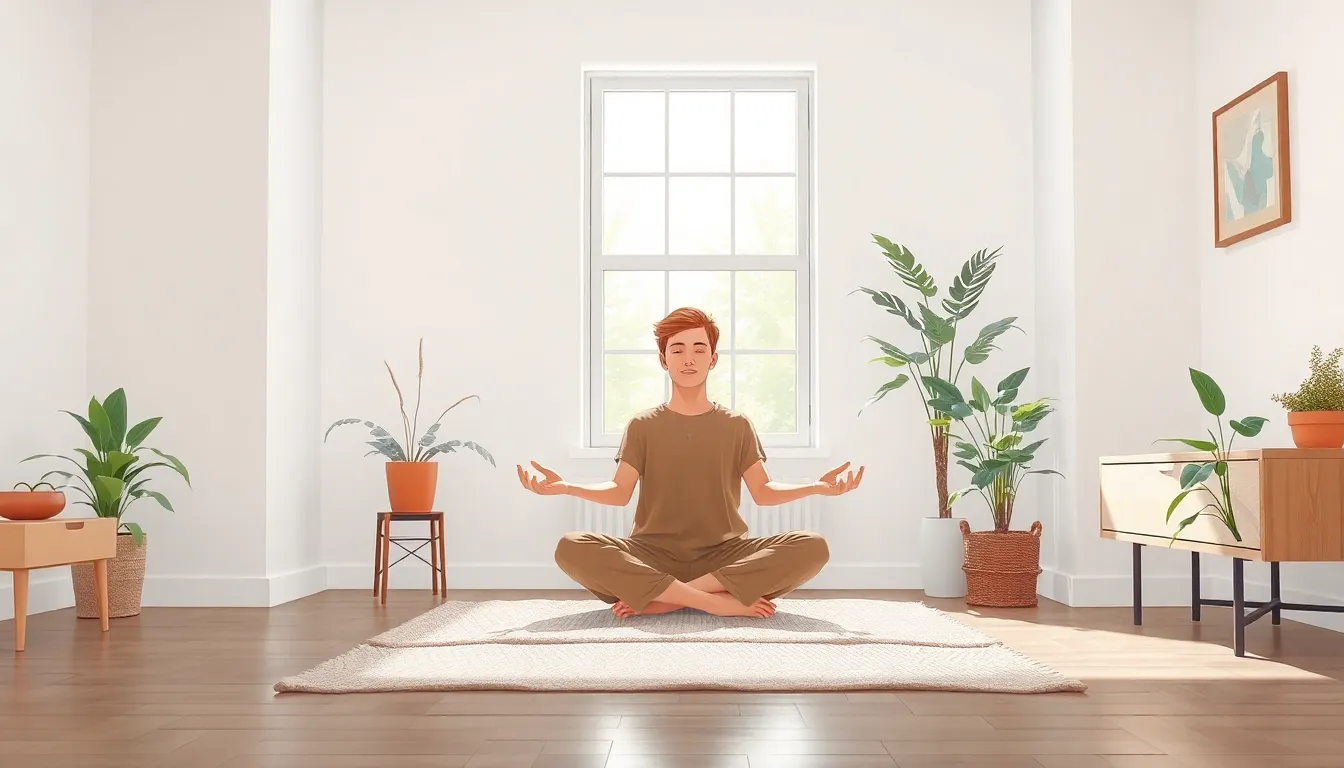Imagine a life where clutter is as rare as a unicorn sighting and stress is just a distant memory. Welcome to the zero lifestyle—a minimalist approach that promises to declutter not just your space, but your mind too. It’s like hitting the reset button on your life, one less item at a time.
In a world obsessed with more, choosing less might sound like a radical idea. But it’s not just about tossing out the old coffee mugs you never use; it’s about creating a life that’s intentional, joyful, and surprisingly freeing. So grab a trash bag and some good vibes, because embracing the zero lifestyle might just be the best decision you never knew you needed.
Zero Lifestyle
Zero lifestyle represents a minimalist approach focused on simplicity and intentionality. This lifestyle aims to create a more meaningful existence by reducing excess and prioritizing essential aspects of life.
Definition of Zero Lifestyle
Zero lifestyle refers to a commitment to living with less physical and mental clutter. This concept promotes the idea that reducing possessions leads to greater clarity and joy. Individuals who adopt this lifestyle consciously evaluate needs versus wants, choosing to eliminate distractions. The ultimate goal involves achieving a balanced state of mind and well-being, where happiness derives from experiences rather than material goods.
Principles of Zero Lifestyle
Several core principles define zero lifestyle practices. Firstly, intentional living emphasizes purpose in daily choices. Secondly, minimalism encourages owning fewer things, focusing on quality over quantity. Thirdly, sustainability promotes eco-friendly habits, such as reducing waste and reusing resources. Lastly, mindfulness fosters awareness of one’s thoughts and feelings, which enhances overall well-being. Embracing these principles creates a fulfilling and enriching life experience.
Benefits of Adopting a Zero Lifestyle

Adopting a zero lifestyle offers significant advantages for individuals and the environment. Embracing minimalism fosters sustainability and enhances well-being.
Environmental Impact
Reducing waste leads to less landfill overflow and decreased pollution. Fewer possessions result in lower consumption rates, promoting sustainable practices. Minimalism encourages resource conservation by promoting the use of items already owned. Choosing local or sustainable products diminishes carbon footprints. Implementing these habits contributes to long-term ecological benefits, allowing for a healthier planet.
Personal Well-being
Eliminating excess clutter fosters mental clarity and reduces stress. Organizing living spaces improves focus and productivity. Mindfulness practices promote a deeper connection to one’s surroundings. Resisting consumerism enhances financial stability by encouraging smarter spending habits. This lifestyle shift nurtures a sense of fulfillment and contentment, allowing for deeper connections with others and leading to a more meaningful life experience.
How to Start a Zero Lifestyle
Starting a zero lifestyle involves a few practical steps. Individuals can begin by examining their current habits and establishing achievable goals.
Assessing Your Current Habits
Individuals should identify their daily routines to gauge areas for improvement. Assessing consumption patterns becomes crucial for understanding what items are necessary. Examining emotional triggers that lead to unnecessary purchases can reveal underlying issues. Keeping a journal for tracking spending habits aids in this evaluation. Staying mindful about one’s possessions helps ensure alignment with personal values. By scrutinizing lifestyle choices, individuals create a clear picture of where to start.
Setting Realistic Goals
Setting specific, measurable, and attainable goals is essential for a successful transition. Individuals can begin with small steps, such as decluttering one room or limiting shopping trips to once a month. Establishing deadlines for these objectives holds individuals accountable. Prioritizing sustainability when selecting new items leads to more thoughtful decisions. Maintaining focus on both short-term and long-term goals reinforces commitment. Celebrating progress creates motivation and encourages ongoing dedication to the zero lifestyle.
Challenges of Maintaining a Zero Lifestyle
Adopting a zero lifestyle brings certain difficulties. Individuals frequently encounter several common obstacles that can hinder their commitment to minimalism.
Common Obstacles
Resistance to change often occurs as one navigates a zero lifestyle. Emotional attachments to possessions complicate decisions to declutter. Social pressure can lead to purchasing items that don’t align with minimalist values. Convenience factors, like easy access to consumer goods, contribute to unwanted spending habits. Time constraints may hinder the ability to evaluate and manage belongings effectively. Ultimately, these barriers challenge one’s dedication to living a simplifying and intentional life.
Strategies to Overcome Challenges
Identifying specific obstacles creates a path toward effective solutions. Setting clear, achievable goals simplifies the transition to a zero lifestyle. Creating a decluttering schedule can help tackle one area at a time, making the process less overwhelming. Practicing mindfulness fosters awareness of emotions tied to possessions, aiding in letting go. Engaging friends or family for support provides motivation during difficult moments. Finally, celebrating small victories reinforces positive habits and sustains commitment to a minimalist approach.
Conclusion
Embracing a zero lifestyle can lead to profound changes in both personal well-being and environmental impact. By intentionally choosing less, individuals can experience increased clarity and reduced stress. This shift not only enhances daily life but also promotes sustainability through mindful consumption.
While challenges may arise during this journey, the rewards of a minimalist approach far outweigh the obstacles. With dedication and practical strategies, anyone can cultivate a more meaningful existence. The path to a zero lifestyle is not just about decluttering physical space; it’s about fostering a mindset that values quality over quantity. As individuals take these steps, they’ll find a renewed sense of joy and fulfillment in their lives.

